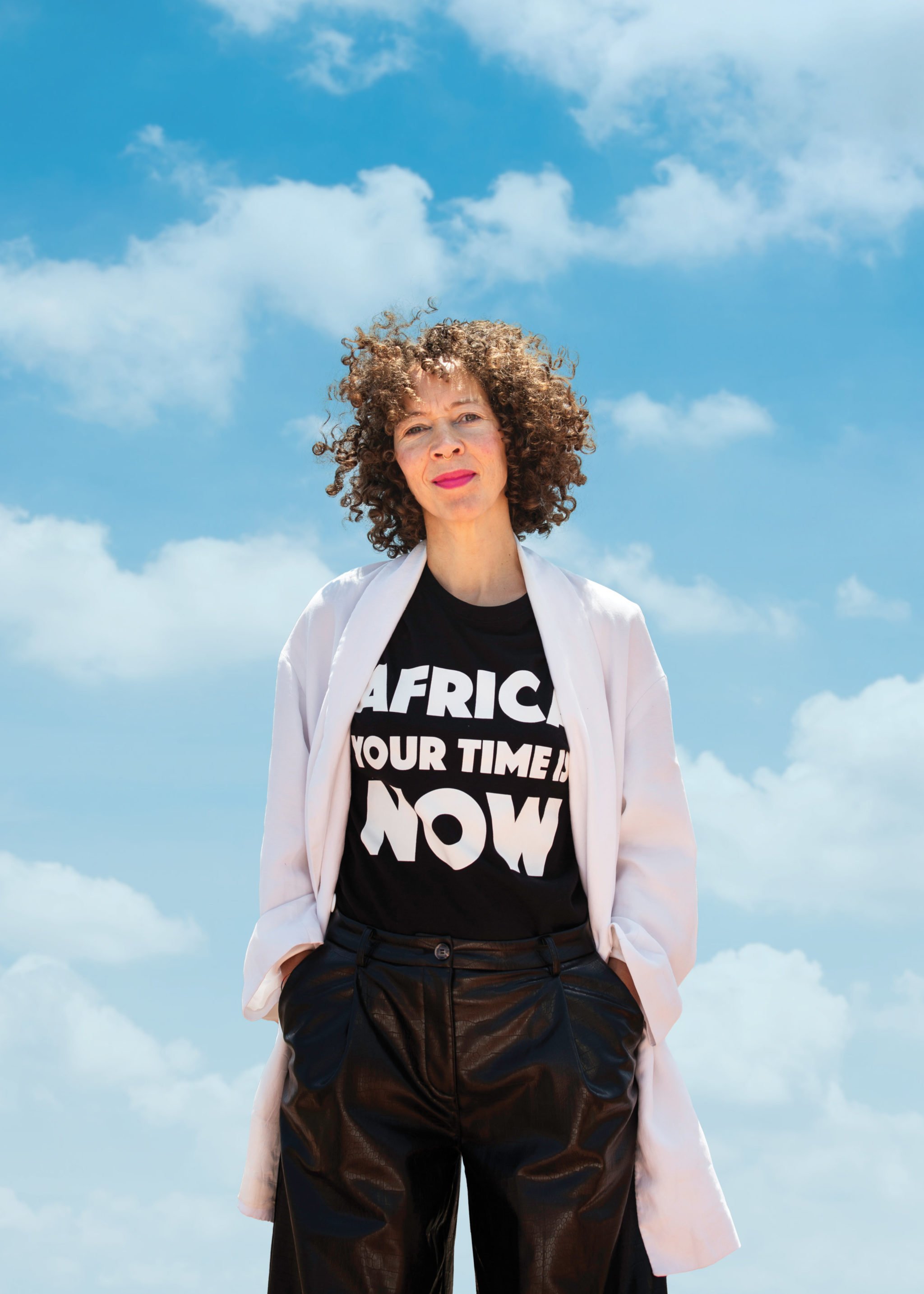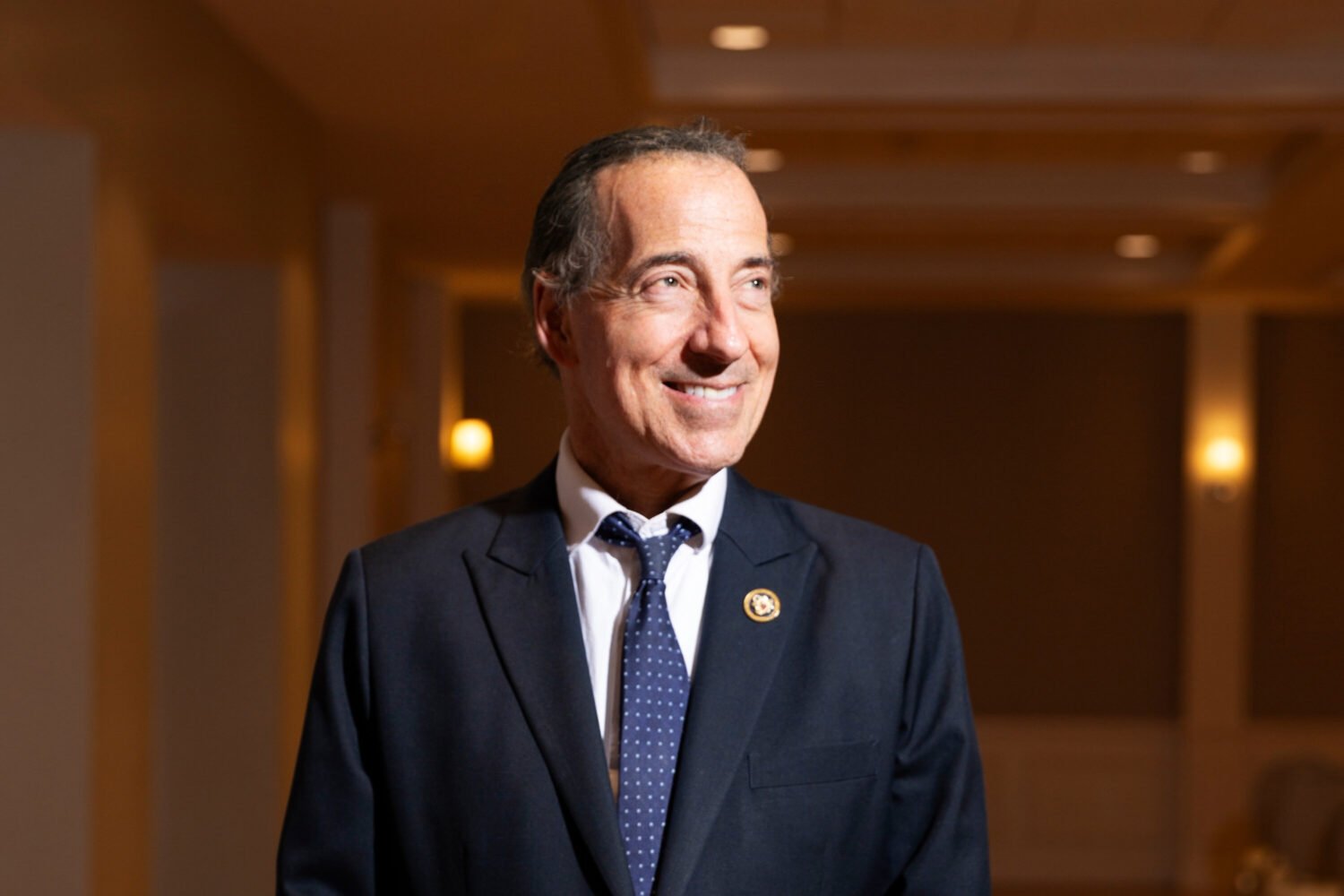Contents
Power in Washington is a complicated thing to quantify. Some people have it by virtue of the office they hold. Others maintain it by virtue of their reputations, no matter what their business card might read. And in a political city, many of the most powerful among us owe their clout to voters—either the constituents who elect them directly or the national electorate who picks the government every four years.
That last factor is a reason why this year’s Most Powerful Women list is replete with new names—not only did the government change, but the new administration put a lot more women into top jobs, starting with the vice-presidency.
Of course, not all power resides in high-profile arenas like politics. Some of the most powerful women on our list might be able to walk down Pennsylvania Avenue unnoticed—while still causing people to tremble in whatever other world they help shape.
Local Public Powers
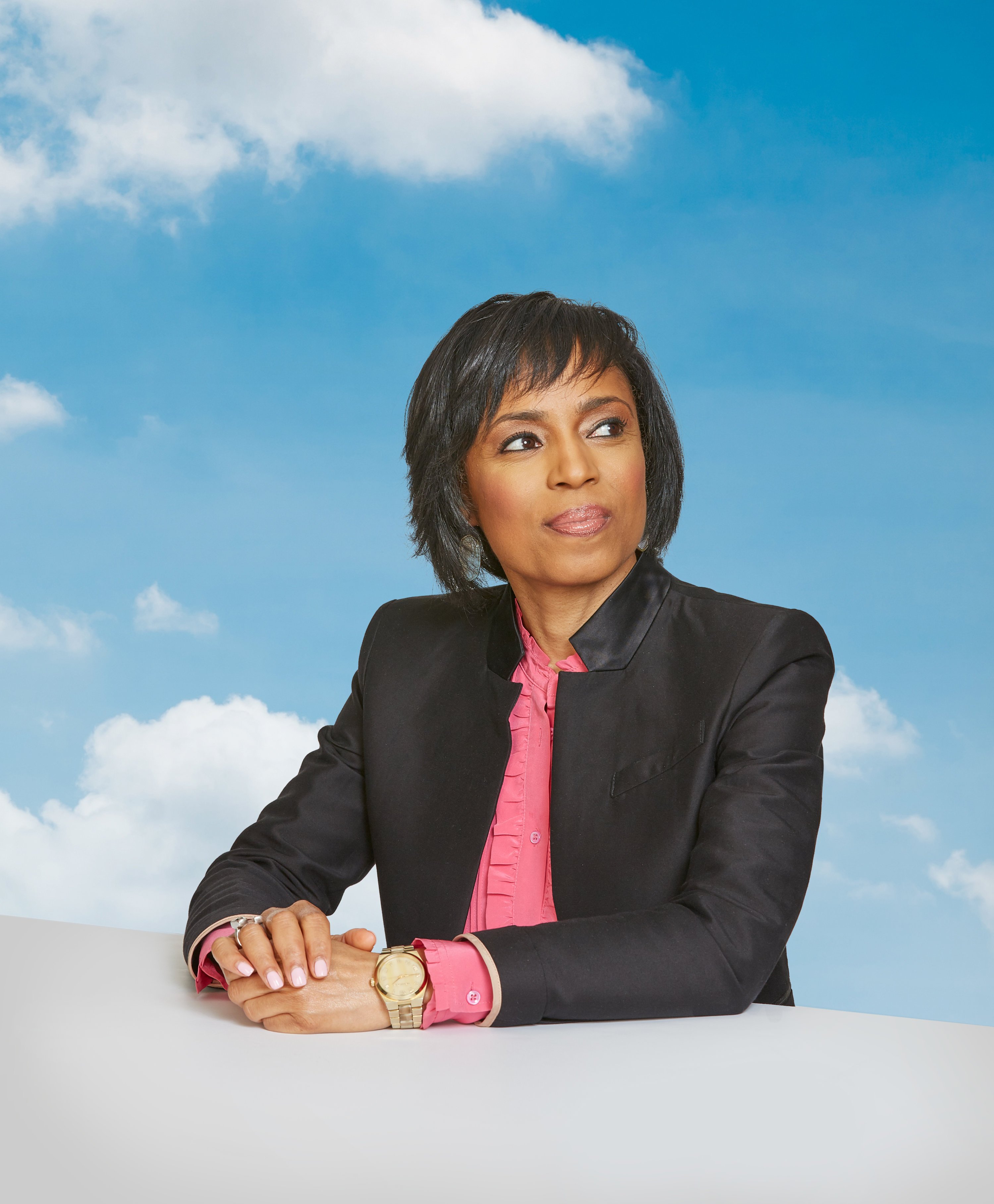
Angela D. Alsobrooks, Prince George’s county executive. First elected in 2018, she has shot down rumors of a gubernatorial run, vowing to seek a second term leading Maryland’s second-largest county.
Ann B. Wheeler, Prince William Board of County Supervisors chair-at-large. Wheeler has had to handle pressing matters, from Covid response to affordable-housing development, in overseeing her county.
Muriel Bowser, mayor of DC. The District’s low-key chief executive was thrust onto an unexpected national stage last year while she coordinated with the federal government to respond to racial-justice protests, white supremacists, and a potential inauguration attack.
LaQuandra Nesbitt, DC Department of Health director. In an ordinary year, a health commissioner wouldn’t be one of the capital’s most powerful women. But this is no ordinary year, meaning all eyes are on the woman in charge of the city’s Covid response.
Eleanor Holmes Norton, DC delegate to Congress, and Jennifer Wexton, US representative from Virginia’s 10th District. The two women among the local congressional delegation have very different trajectories: Norton has held her position for 30 years, assembling a House majority for DC statehood. Wexton flipped her NoVa seat from red to blue only in 2018.
Back to TopNational Power and Politics
Kamala Harris, Vice President of the United States. Her election made history, but she’s also been handed some of the new administration’s trickiest portfolios.
Janet Yellen, Treasury Secretary; Deb Haaland, Interior Secretary; Gina Raimondo, Commerce Secretary; Marcia Fudge,Housing and Urban Development Secretary; and Jennifer Granholm, Energy Secretary. The Biden cabinet is conspicuously heavier on women than its predecessor was. Yellen, the former Federal Reserve chair, is the first woman to hold her powerful job; Haaland is the first Native American cabinet Secretary.
Katherine Tai, US Trade representative; Cecilia Rouse, Council of Economic Advisers chair; Susan Rice,Domestic Policy Council leader; Isabel Guzman,Small Business Administration administrator; and Evan Ryan, White House Cabinet Secretary. Among the women in other top jobs, Tai oversees one of the most politically explosive policy issues in the post-Trump era, while Rouse and Guzman have jobs whose importance has grown as a result of the pandemic-related economic crisis. Rice, a former national-security adviser, has made the biggest career shift of all.
Jen Easterly, Cybersecurity and Infrastructure Security Agency director; Avril Haines, director of national intelligence; Wendy Sherman,deputy secretary of State; and Samantha Power, USAID administrator. As CISA director, Easterly keeps an eye on cybersecurity threats, another scary and headline-grabbing topic. Haines’s job is especially complicated as domestic terrorism joins the international kind as a concern. Sherman helps manage the US-China relationship, while Power seeks ways to leverage international assistance.
Lina Khan, Federal Trade Commission chair. The battle over tech monopolies will be one of the era’s biggest political scrums, and Khan—a brilliant lawyer and antitrust expert—will be front and center.
Jen Psaki, White House press secretary, and Jen O’Malley Dillon, deputy White House chief of staff. The two Democratic campaign veterans help shape the President’s communications and political strategy.
Neera Tanden, senior adviser to the President. Her nomination to run OMB may have blown up, but she’s joined the administration as a top policy adviser.
Carla Hayden, Librarian of Congress. The first woman and African American in the post, Hayden has overseen the library during the past two administrations and will continue to do so as its collections fill with pandemic-era records.
Tina Flournoy, chief of staff to Kamala Harris. Flournoy is top aide to the woman who’s a heartbeat away from the presidency.
Jill Biden, First Lady. She doesn’t have an official job description, but she’s the last person POTUS talks to every day—and is, by all accounts, a trusted confidante.
Ronna McDaniel, Republican National Committee chair. The GOP is shut out of the executive branch, but its high-profile party leader is keeping the fires of Trumpism going.
Back to TopInternational Powers
Kristalina Georgieva, International Monetary Fund managing director. It’s one of Washington’s—and the world’s—most important perches, and it now involves helping the global economy through the pandemic.
Kirsten Hillman, Canadian ambassador to the US; Emily Haber, German ambassador; and Karen Pierce, British ambassador. This trio represent three of America’s closest allies. Pierce is developing a particular reputation as a social force.
Princess Reema bint Bandar bin Sultan bin Abdulaziz Al Saud, Saudi ambassador to the US, and Lianys Torres Rivera, Cuban ambassador. Among countries that have more complicated relationships with our country, the Saudi ambassador represents an ally that many Americans view with great suspicion, and Rivera is navigating a still-pretty-chilly thaw with an old nemesis.
Back to TopPower on the Hill
Nancy Pelosi, speaker of the House. Her majority is slim and her caucus increasingly fractious, but the shrewd San Francisco congresswoman remains a force to go up against in the House.
Representative Rosa DeLauro, House appropriations chair, and Representative Carolyn Maloney, House oversight chair. DeLauro and Maloney head two of the Capitol’s most fearsome committees—which dole out tax dollars and investigate wrongdoing, respectively.
Representative Alexandria Ocasio-Cortez, Representative Barbara Lee, and Senator Elizabeth Warren. AOC and Warren may not be able to command vast caucuses, but they and Lee can command both attention and the devotion of the Democrats’ most ardent supporters—making them forces to be reckoned with.
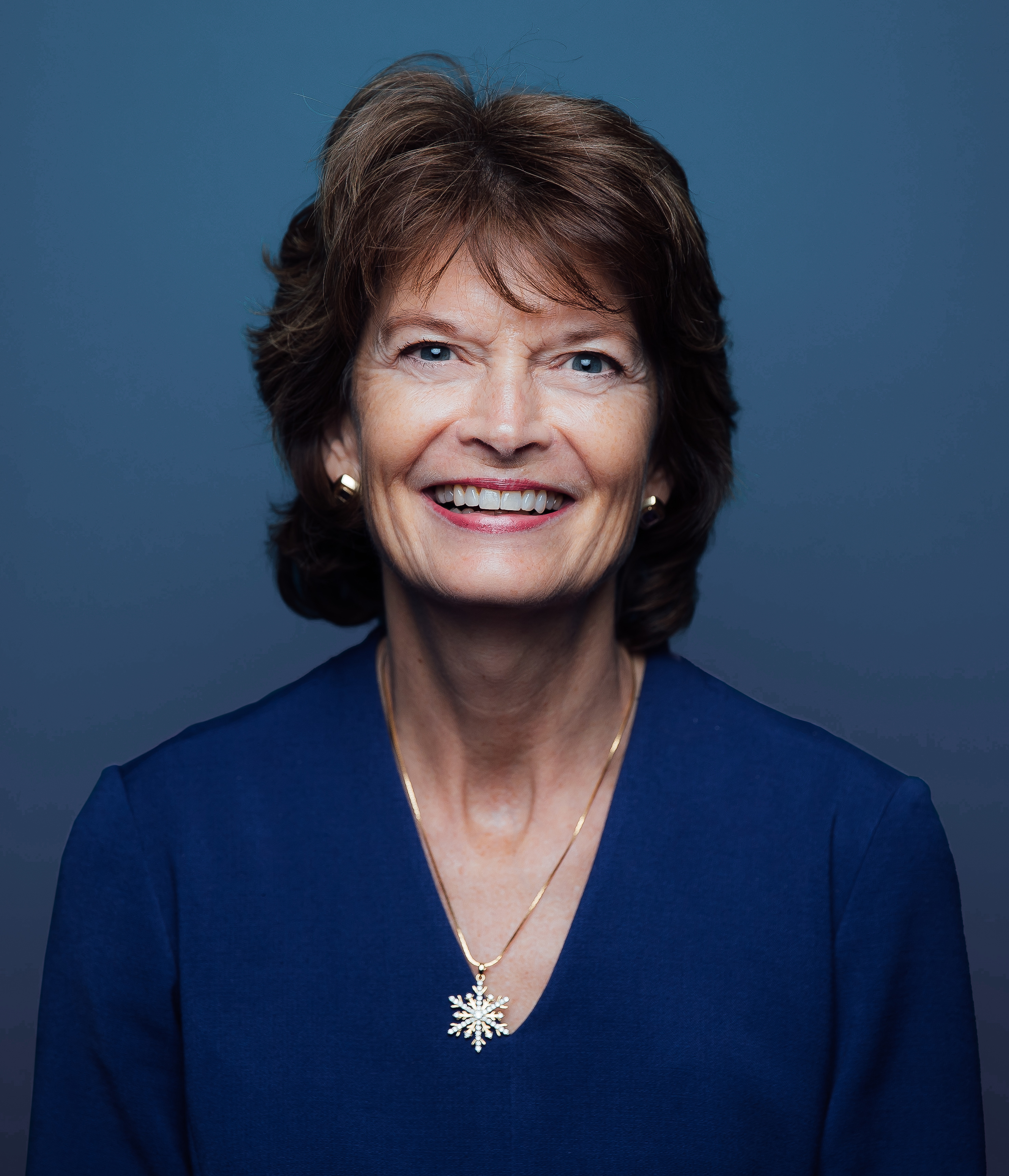
Senator Kyrsten Sinema and Senator Lisa Murkowski. In a 50-50 Senate, moderates have an inordinate amount of juice within their own parties, putting rookie Sinema and veteran Murkowski in a position to shape legislation.
Representative Elise Stefanik, House Republican conference chair, and Representative Liz Cheney. Stefanik, a vocal Trump backer from upstate New York, became the number-three House Republican after her colleagues voted out Cheney for crossing the former President. Doesn’t that mean Cheney has no power? Not quite: She still has the power to drive news, and she has used it.
Elizabeth MacDonough, Senate parliamentarian. At a time when the filibuster dominates the Senate, the person who rules on procedures—such as whether a bill can pass under reconciliation, requiring only a simple majority—is crucial.
Sharon Soderstrom, chief of staff to Senate minority leader Mitch McConnell. She’s spent the last decade heading the Kentucky senator’s office, watching him flip from minority to majority leader and back again.
Back to TopLegal Powers
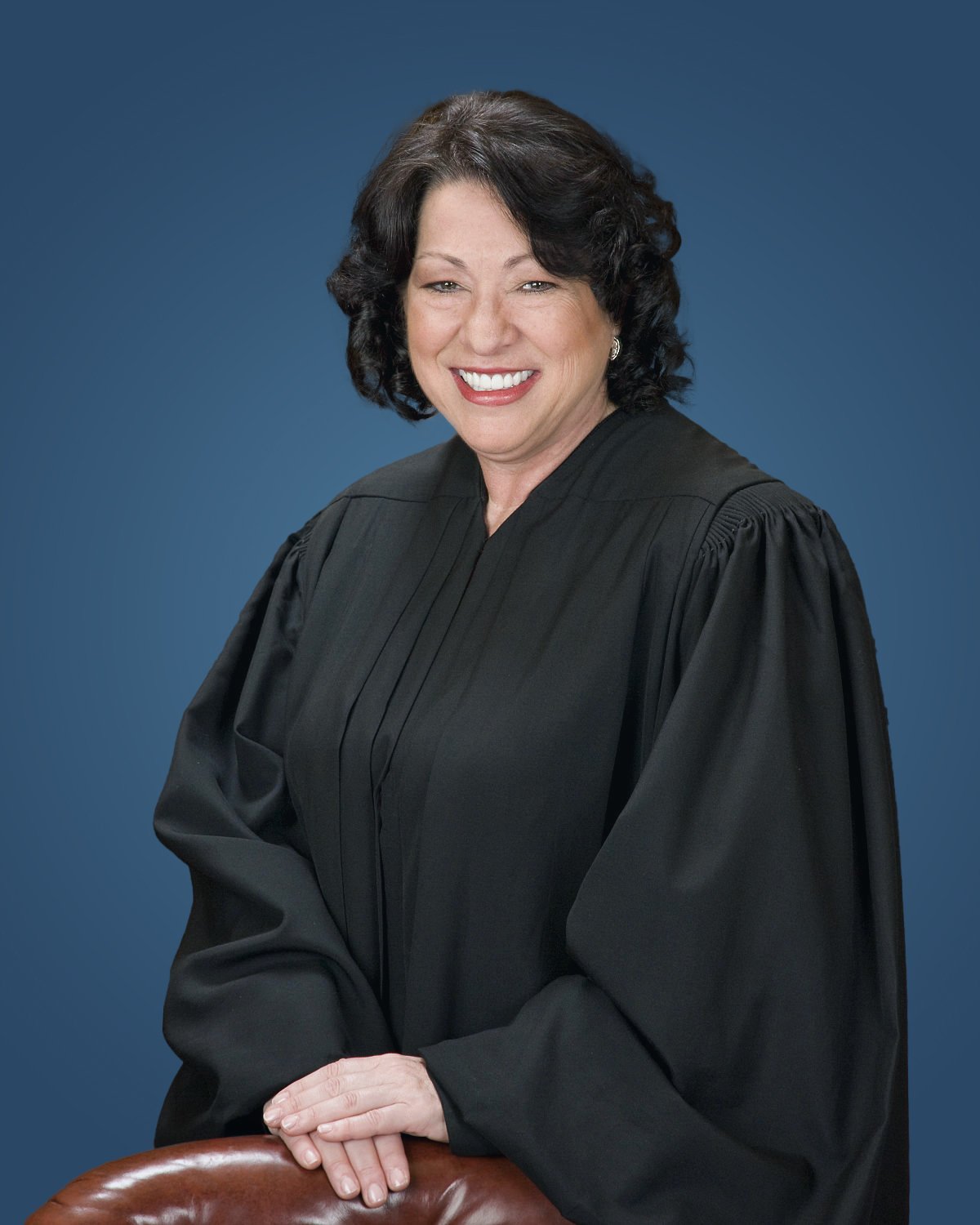
Amy Coney Barrett, Elena Kagan, and Sonia Sotomayor, US Supreme Court associate justices. The court’s female justices are no longer all part of the same bloc: Trump appointee Barrett, who replaced Ruth Bader Ginsburg in the days before last year’s election, is firmly in the right-wing majority.
Ketanji Brown Jackson, US Court of Appeals judge. In the event President Biden gets to make a SCOTUS appointment of his own, there’s a decent chance it’ll be Jackson, newly elevated to the court that has produced many prior justices.
Anna Blackburne-Rigsby, chief judge, DC Court of Appeals; Anita Josey-Herring, chief judge, DC Superior Court; and Beryl Howell, chief judge, US District Court for DC. These women lead three crucial local benches.
Debra Katz, Katz, Marshall & Banks, and Beth Wilkinson, Wilkinson Stekloff. Katz is the capital’s go-to #MeToo litigator, while Wilkinson was brought in by the Washington Football Team to investigate its problematic internal culture.
Lisa Blatt, Williams & Connolly; Nicole Saharsky, Mayer Brown; and Cristina Carvalho, Arent Fox. Blatt and Saharsky lead their firms’ Supreme Court practices. Carvalho is managing partner at her white-shoe law firm.
Elizabeth Prelogar, solicitor general–designate. On track for a speedy confirmation at press time, Prelogar, if confirmed, would take a job whose previous occupants include Justice Elena Kagan.
Back to TopEducation Powers
Sylvia Burwell, American University president. A former HHS Secretary, with no scholarly background, she was a bold choice to lead the institution.
Monica Goldson, Prince George’s County Public Schools CEO, and LaTanya McDade, Prince William County Public Schools superintendent. Running vast school districts makes both women major powers in their communities. Doing so during Covid makes them even higher-profile.
Jacqueline Pogue Lyons, Washington Teachers’ Union president. During the pandemic, the question of when and how teachers would return to school became a huge deal. Lyons is the point person on the teachers’ side.
Falecia D. Williams, Prince George’s Community College president. She leads one of the area’s best-regarded community-college systems.
Idea Powers
Kay C. James, Heritage Foundation president. Think tanks are often most creative when their political side is out of power. James leads the granddaddy of conservative outfits.
Anne-Marie Slaughter, New America CEO. New America has helped supply plenty of talent to the administration, and its longtime leader is an important DC presence.
Sharon Parrott, Center on Budget and Policy Priorities president. The liberal foundation has gained new relevance with the rise of direct child-tax-credit payments.
Sarah Rosen Wartell, Urban Institute president. Likewise, the affordable-housing problem in growing cities has put the Urban Institute and its head at the center of a major policy issue.
Sarah Miller, American Economic Liberties Project executive director. On another key 2021 issue—antitrust—Miller has become one of the fiercest advocates for change.
Lisa Kaplan, Alethea Group founder. Her organization combats disinformation—a crucial issue as midterms loom.
Gail Ross, Ross Yoon Agency president. One of DC’s top literary agents, she heads a team that has recently represented highly acclaimed books such as Melissa Febos’s Girlhood and Molly Ball’s Pelosi.
Back to TopBusiness Powers
Phebe Novakovic, chair and CEO of General Dynamics; Kathy Warden, chair, CEO, and president of Northrop Grumman; Nazzic Keene, CEO of SAIC; and Barbara Humpton, president and CEO of Siemens Corporation. They’re leaders in four of the world’s best-known firms.
Leslie D. Hale, president and CEO of RLJ Lodging Trust; Stephanie Linnartz, president of Marriott International; and Gloria Bohan, president and CEO of Omega World Travel. Washington is home to several titans in the travel industry—which has had a particularly challenging year. Hale oversees a portfolio of midrange hotels, Linnartz is the international face of one of the best-known hospitality brands, and Bohan is founder of one of the country’s leading travel firms.
Suzanne Clark, president and CEO of the US Chamber of Commerce. Clark represents the interests of more than 3 million businesses in the US.
Mary Brady, president and CEO of the Economic Club of Washington DC. Brady oversees the city’s largest business-advocacy group—and convenes its excellent speaker series.
Mary Kay Henry, international president of SEIU. Henry represents 2 million workers across service sectors.
Liz Shuler, president of the AFL-CIO. Shuler was recently voted in after the death of longtime head Richard Trumka, becoming the first woman to lead the 12.5-million-member federation of unions.
Sachiko Kuno, founder and chair of Halcyon. Kuno’s nonprofit has supported startups in everything from robotics to studio arts.
Shaza Andersen, founder and CEO of Trustar Bank. She leads the first new DC-area bank to open in more than a decade.
Julie Sweet, Chair and CEO at Accenture, and Lisa Osborne Ross, US CEO of Edelman. These women are in top jobs of consulting and communications powerhouses, respectively.
Terri McClements, senior partner at PwC, and Tamika Tremaglio, Greater Washington managing principal for Deloitte. They’ve helped steer two of the largest consulting firms through a tough year.
Norma Kuntz, COO and CFO of global private equity for Carlyle. The high-profile private-equity firm has $276 billion in assets.
Ardine Williams, VP for workforce development for Amazon. She’s responsible for staffing up the headquarters in Arlington, a major new economic driver in the region.
Roberta Liss, East Region president of commercial real-estate giant Cushman & Wakefield; Jodie McLean, CEO of Edens; and Kyle Schoppmann, Mid-Atlantic president of CBRE, the world’s largest commercial real-estate-services company. The commercial real-estate market is in rapid transition thanks to technology—and Covid. These three will help figure out its future.
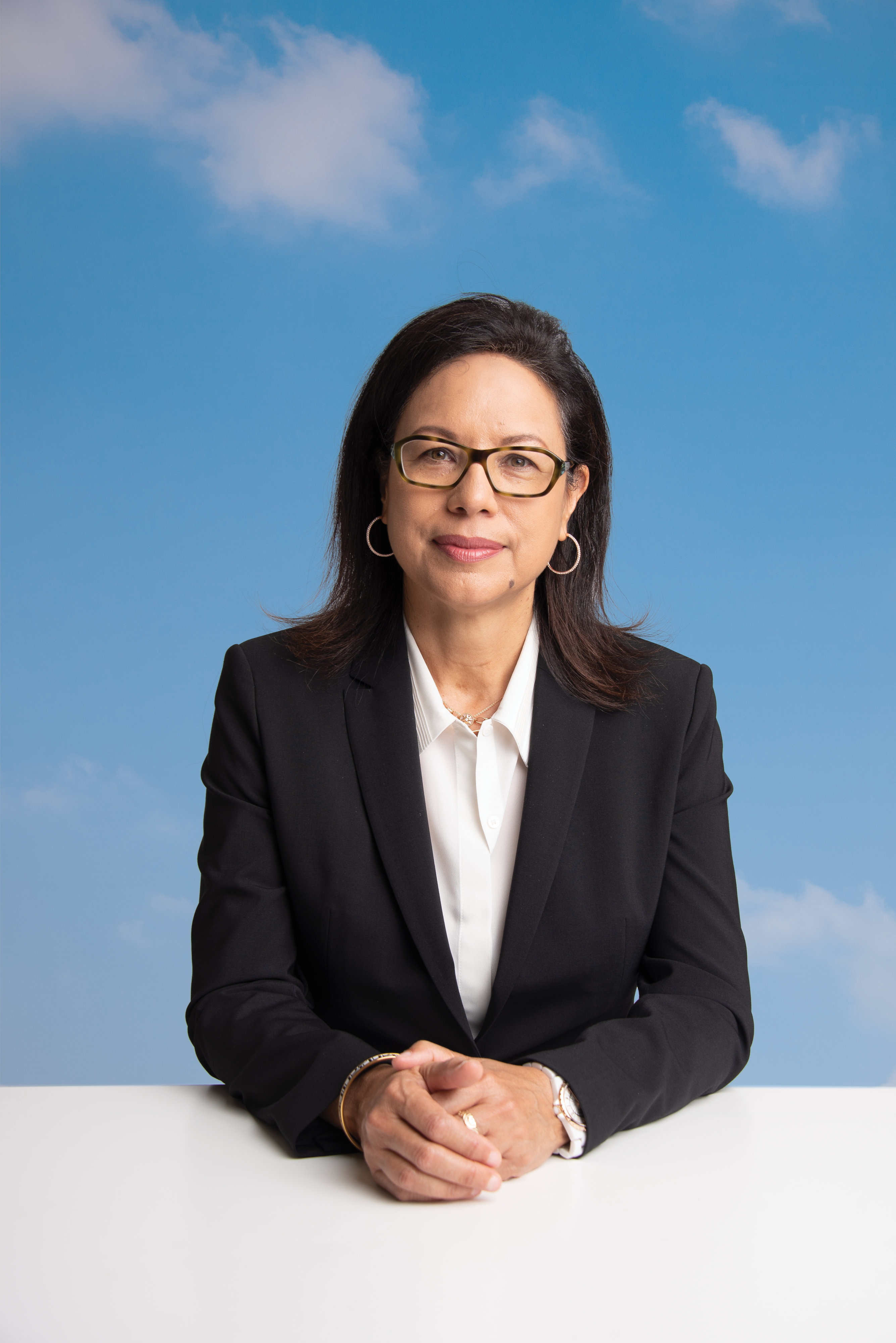
Linda Rabbitt, founder and chair of Rand Construction; Susan Williamson Ross,executive VP of Clark Construction; and Diane Hoskins, co-CEO of Gensler. In the big business of construction, Rabbitt stepped down from her long-held CEO post in 2019 but remains active as board chair, while Ross’s firm is working on Metro’s Silver Line extension. Hoskins helms the architecture giant that’s recently led projects ranging from the Shanghai Tower to the American Kennel Club’s Museum of the Dog.
Debra Lerner Cohen, Washington Nationals principal owner, and Michelle Freeman, CEO and president of the Carl M. Freeman Companies and minority partner in Monumental Sports & Entertainment, which owns Capital One Arena and the Wizards, Capitals, and Mystics. The two help steer major DC teams through championship and dud seasons alike.
Back to TopNonprofits and Philanthropy
Gail McGovern, president and CEO of the American Red Cross. McGovern has created a new future for the organization after a decade’s recovery from scandal and deficit.
Marlene Malek, vice chair and cofounder of Friends of Cancer Research. The nonprofit aims to unite scientists and policymakers to speed development of new treatments.
Jennifer Morris, CEO of the Nature Conservancy. Morris leads the organization’s efforts to protect ecologically important land across the globe.
Rosie Allen-Herring, president and CEO of United Way of the National Capital Area, and Radha Muthiah, president and CEO of the Capital Area Food Bank. They helm two of the best-known local charitable organizations.
Adrienne Arsht, Jean Case, Jacqueline Mars, Sheila C. Johnson, and Catherine B. Reynolds. The high-profile philanthropists focus on an array of issues: Arsht is a top arts supporter, Case’s foundation directs funds toward entrepreneurs addressing social issues, Mars is on the board of the Smithsonian and a major backer of the National Archives, and Johnson’s and Reynolds’s eponymous foundations promote arts and education.
Back to TopMedicine
Erin O’Shea, president of theHoward Hughes Medical Institute. She’s the first woman to lead the massive medical philanthropy.
Anita Jenkins, CEO of Howard University Hospital; Jessica Melton, president and COO of Suburban Hospital; Kimberly Russo, CEO of George Washington University Hospital; M. Joy Drass, executive VP and COO of MedStar Health; Alice Pope, CFO of Inova Health System; and Annice Cody, president of the Holy Cross Health Network. These women have navigated unprecedented challenges to ensure that patients receive high-quality care.
Ruth Williams-Brinkley, regional president of the Mid-Atlantic states for Kaiser Permanente, and Monica Schmude, president of the Mid-Atlantic market for Cigna. They lead local business for one of the best-known HMO providers and a major insurer, respectively.
Martine Rothblatt, chair, CEO, and founder of United Therapeutics. Rothblatt started one of the country’s most dynamic medical-research-and-innovation firms—and helped remake its Silver Spring neighborhood.
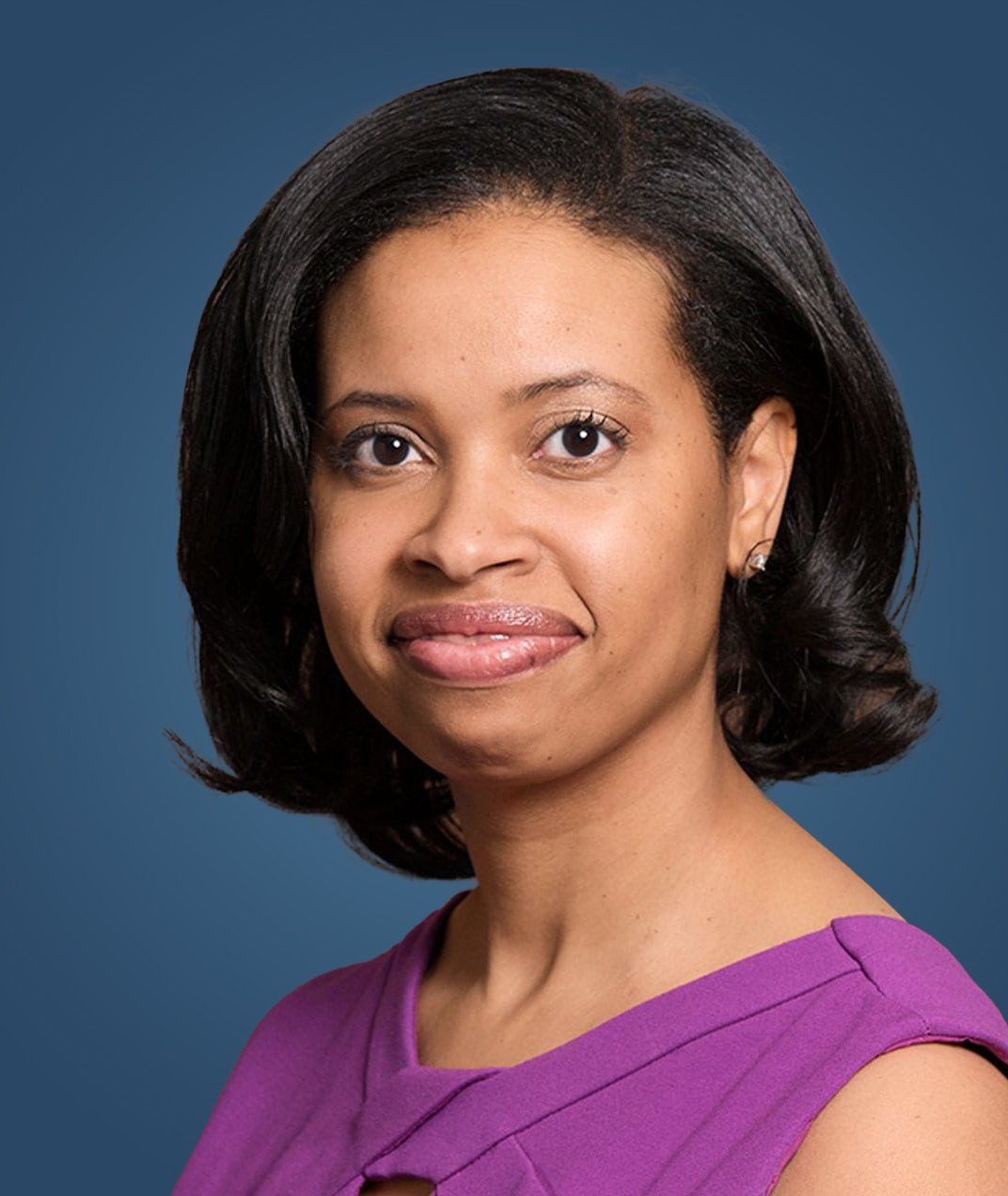
Chiquita Brooks-LaSure, administrator of the Centers for Medicare and Medicaid Services. Medicare and Medicaid make up sprawling portions of the federal budget—and touch the lives of millions. Brooks-LaSure is the first Black woman to hold her position.
Back to TopLobbying and Advocacy
Heather Podesta, founder and CEO of Invariant; Juleanna Glover, founder and CEO of Ridgely Walsh; and Tammy Haddad, president and CEO of Haddad Media. These three provide must-have services in the advocacy realm.
Gloria Dittus, chair of Story Partners. Hers is a go-to strategic communications firm.
Erin Egan, VP for public policy and chief privacy officer for pol-icy at Facebook, and Virginia Boney, senior manager for public policy at Amazon. With the backlash against Big Tech cutting across political parties, these two will be a major part of the 2021 conversation.
Anita Dunn, partner at SKDKnickerbocker. The veteran strategist just returned to her firm after a White House stint.
Susan Neely, president and CEO of the American Council of Life Insurers. Neely is a veteran of DC’s top lobbies.
Katherine Lugar, president and CEO of the American Beverage Association. As head of the main US trade association for the nonalcoholic-beverage industry, Lugar reps the interests of giants such as Coca-Cola, Pepsi, and Keurig Dr. Pepper.
Lisa B. Nelson, CEO of the American Legislative Exchange Council. ALEC has become one of the most powerful organizers of the right.
Stephanie Cutter, founding partner of Precision. She was chief program executive for the Emmy-nominated virtual 2020 Democratic convention.
Holly Harris, president of Justice Action Network. She’s at the center of fights over criminal-justice reform.
Jessica Medeiros Garrison, vice president of government affairs at Clearview AI. The firm’s innovative facial-recognition technology frightens a lot of civil-libertarians. Garrison is involved in selling it.
Janet Murguía, president and CEO of UnidosUS. The nonprofit helps lead the fight for Latinx rights.
Ellen Malcolm, founder and chair emerita of EMILY’s List. The venerable organization supports pro-choice women seeking office across the US.
Back to TopMedia
Sally Buzbee, executive editor of the Washington Post. Buzbee is the new boss at DC’s most storied news outlet—and is set to use owner Jeff Bezos’s wallet to take the company in new global directions.
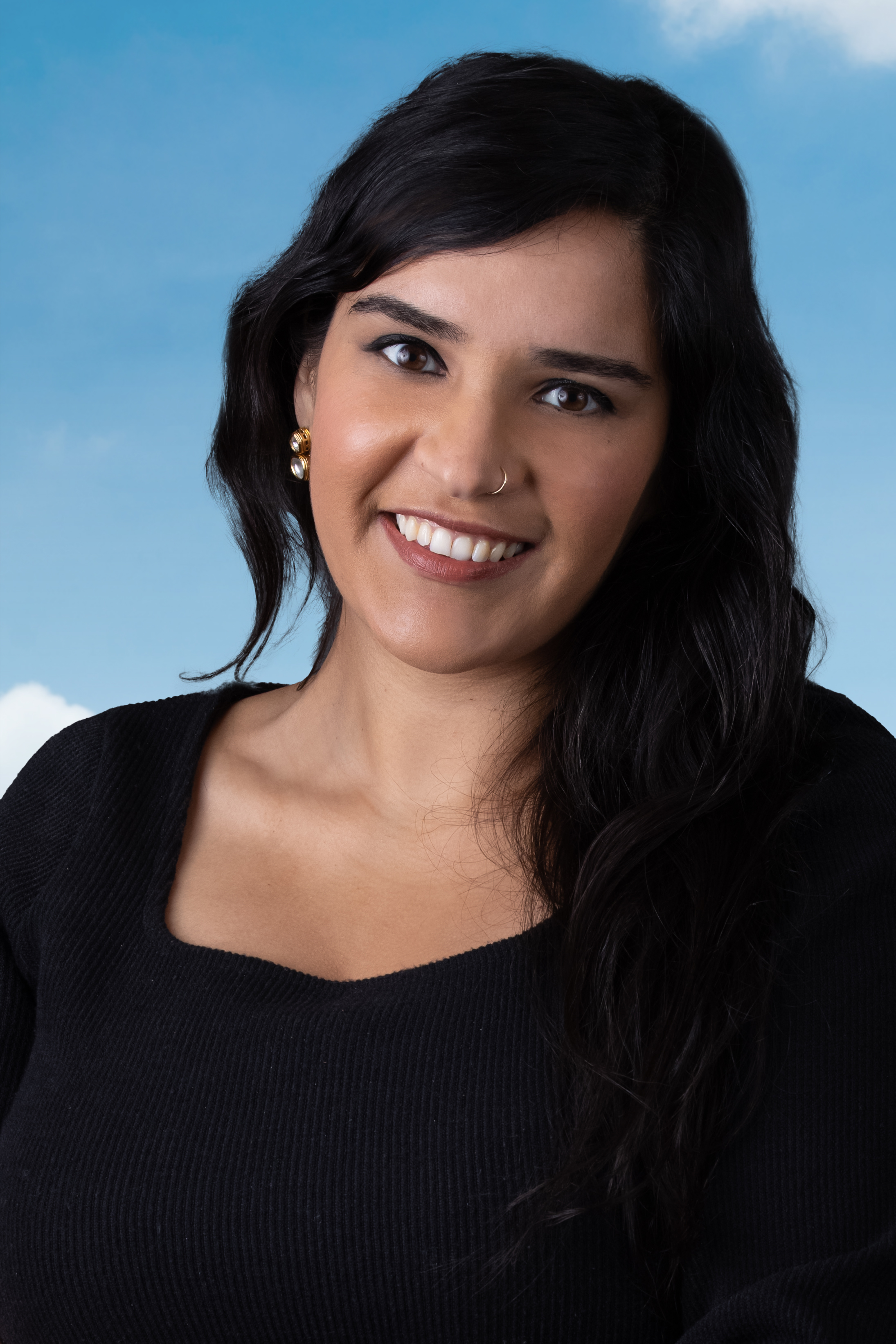
Susan Goldberg, editor in chief of National Geographic; Nancy Barnes, editorial director and senior VP of news at NPR; Swati Sharma, editor in chief of Vox; and Amy Walter, publisher and editor in chief of the Cook Political Report. Goldberg and Barnes, both former newspaper editors, lead one of the nation’s most famous magazines and its premier radio (and more) news outfit, while Sharma and Walter head smaller organizations touching on policy and politics, respectively.
Elisabeth Bumiller, New York Times Washington bureau chief. She runs DC coverage for one of the country’s leading news organizations.
Norah O’Donnell, CBS Evening News anchor and managing editor; Judy Woodruff,
PBS NewsHour anchor and managing editor; and Yamiche Alcindor, Washington Week moderator and PBS NewsHour White House correspondent. All three are regular presences driving the news—either by presenting it or by gathering people to discuss it.
Abby Phillip, CNN senior political correspondent and anchor of Inside Politics Sunday; Dana Bash, CNN chief political correspondent and co-anchor of State of the Union; and Tara Palmeri, coauthor of Politico’s Playbook. They’re among the city’s most watched reporters—Phillip and Bash via TV, Palmeri because Playbook is a dishy read where a certain class of Washingtonians eagerly want to see their own names.
Paula Kerger, president and CEO of PBS; Cathy Hughes, founder and chair of Urban One; and Jackie Bradford, president and general manager of NBC4 and NBC Sports Washington. On media’s business side, these three are key.
Back to TopArts
Ngaire Blankenberg, head of the National Museum of African Art; Melanie Adams, director of the Anacostia Community Museum; Stephanie Stebich, director of the Renwick Gallery and Smithsonian American Art Museum; Kim Sajet, director of the National Portrait Gallery; Melissa Chiu, director of the Hirshhorn Museum; and Anthea M. Hartig, director of the National Museum of American History. Blankenberg was named to take over the Museum of African Art this summer. The rest have led Smithsonian museums during a time when Covid shuttered such institutions—and a racial reckoning pushed many to reassess curatorial decisions.
Ellen Stofan, Smithsonian undersecretary for science and research. The former Air and Space Museum director got a promotion—helping her shape the entire institution.
Kaywin Feldman, National Gallery of Art director, and Dorothy Kosinski, Phillips Collection director and chief executive. The first woman to run the US’s national art museum, Feldman is leading a rebranding that aims to expand NGA’s reach. Kosinski will step down from her position at the end of 2022 after almost 15 years, during which she more than doubled the Phillips’s collection and increased its endowment fivefold.
Susan Fisher Sterling, director of the National Museum of Women in the Arts. She’s overseeing a two-year renovation of the Classical Revival building.
Aileen Fuchs, president and executive director of the National Building Museum. The museum—in one of DC’s greatest buildings—announced its new chief earlier this year.
Molly Smith, artistic director of Arena Stage, and Maria Manuela Goyanes, artistic director of Woolly Mammoth. Smith leads one of the city’s oldest theaters, while Goyanes has turned Woolly into one of its most politically daring.
Deborah Rutter, president of the Kennedy Center, and Monica Jeffries Hazangeles, president and CEO of Strathmore. After a year of shutdowns, both arts centers announced full 2021–22 seasons.
Francesca Zambello, artistic director of the Washington National Opera. She’s opening the season with a musical tribute to longtime friend and fellow opera lover Ruth Bader Ginsburg.
Back to TopReligion
Mariann Edgar Budde, Episcopal Bishop of Washington. Usually found preaching at National Cathedral, she was in the news last year due to a smaller church—St. John’s, where Donald Trump staged a photo op that Budde loudly condemned.
Lauren Holtzblatt, rabbi at Adas Israel. The religious leader of one of DC’s key synagogues, she led Justice Ruth Bader Ginsburg’s Supreme Court memorial service.
